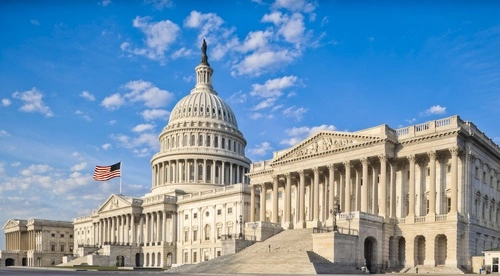After months of unusually heavy rainfall from California’s atmospheric rivers in the beginning of 2024, many projects found themselves facing delays, additional costs and setbacks due to the wet weather. In determining who is responsible for those delays, costs or setbacks, the first thing to look for in a contract are provisions on Force Majeure. Some parties may be surprised by what their contract says on Force Majeure and what risk they assumed for bad weather. …
Insurance on a project is a vital tool with which to manage project risk. In a warming world with ever larger and more complex projects, insurance becomes that much more important to ensure that projects can stay on track after an accident or other insurable event.
Join Jim Vorhis and me on May 30th for the next webinar in our Infra Insight webinar series focused on navigating risks and adapting insurance to align with evolving methods of project delivery. We are excited to welcome our guest panelists, Michael Earp and Tariq Taherbhai from Aon Construction & Infrastructure. …
The U.S. Department of Transportation (USDOT) recently announced a long-awaited Notice of Funding Opportunity (NOFO) for public agencies to enhance technical capacity to deliver projects using a public-private partnership (P3) model. Authorized by the Infrastructure Investment and Jobs Act (P.L. 117-58; also known as the IIJA), $57.72 million is available through the Innovative Finance and Asset Concessions Grant Program (Program) for public agencies to hire technical, financial and legal experts (either on staff or as consultants) to support the evaluation and delivery ...
While the Build America Buy America Act aims to promote domestic manufacturing and support American industries, it also presents several challenges. Addressing these challenges requires a balanced approach that balances the Act's objectives with the practical considerations of project management, supply chain dynamics and international trade relations. Join us on March 19th as we discuss these issues and more with Al Caldarelli, Managing Counsel, Commercial Transactions for Massachusetts Department of Transportation and Teddy Low, Senior Deputy County Counsel for Los ...
On January 17, 1994, a 6.7 magnitude earthquake struck Northridge, California, resulting in thousands of casualties and approximately $60 billion in damages and economic loss. Hospitals within the impacted area suffered severe structural damage and many became inoperable. Recognizing the insufficiency of the existing seismic safety standards for hospitals, the state of California signed Senate Bill 1953 (SB 1953) into law in September 1994.
SB 1953, also known as the Hospital Seismic Retrofit Program, established the following deadlines by which all California general ...
When an infrastructure project takes the first steps from vague idea towards becoming a reality, public owners must make countless decisions on how to advance the project. One decision of particular importance is the selection of the project delivery method, which has significant impacts on the project’s timeline and budget. While many owners are familiar with a variety of project delivery methods, including alternative delivery methods such as design-build, construction manager-at-risk and public-private partnerships, knowing when to choose one option over another can ...
To mitigate the effects of climate change and years of drought, California plans to double the amount of recycled water produced in the state by 2040 – but is producing more water enough? There’s a rising trend of building energy recovery facilities in wastewater facilities to reduce the reliance on existing utility providers and powering the plant with biogas generated from sludge processing and co-digestion of organic waste diverted from landfills. …
A decades-long battle over a proposed desalination plant generated considerable attention for desalination. Despite the defeat of the Poseidon plant in Huntington Beach, CA, the California Coastal Commission has approved multiple plants since. As a result, substantial questions remain about desalination’s role in California’s water future. In “The Future of Desalination, Post-Poseidon,” we analyze the most significant barriers and opportunities for desalination to help California overcome its future water shortage issues due to population growth and climate ...
Federal prevailing wage law, known as the Davis-Bacon Act and Related Acts (Davis-Bacon Act), is applicable to almost every federal and federal-aid project. The rules governing the Davis-Bacon Act have been essentially unchanged for 40 years. But now, for the first time since the Reagan administration, the U.S. Department of Labor (Department) is updating the Davis-Bacon Act and making a number of significant changes to how the Davis-Bacon Act is administered ...
The first urban-core tolling program in the United States marked a major milestone. In late June, the Federal Highway Administration (FHWA) concluded its environmental assessment of the Metropolitan Transportation Authority’s (MTA) Central Business District (CBD) Tolling Program and issued a Finding of No Significant Impact (FONSI). This federal determination will allow the program to move forward into implementation. ...
Nossaman’s 30-plus infrastructure attorneys offer clients, colleagues, strategic partners and industry media a wealth of practical experience, insider insight and thoughtful analysis here on Infra Insight. We blog about what we know best, from industry-leading procurements to local and national policy developments that affect the market and our clients.
Stay Connected
 RSS Feed
RSS Feed
Categories
- Airports
- Alternative Project Delivery
- Bridges
- California Environmental Quality Act
- Cybersecurity
- Design-Build
- Financing
- High-Speed Rail
- Job Opening
- Legislation
- News
- P3s
- Policy
- Ports
- Rail and Transit
- Social Infrastructure
- Tollroads/ Turnpikes/ Managed Lanes
- Transportation Infrastructure
- Tunnels
- Water










